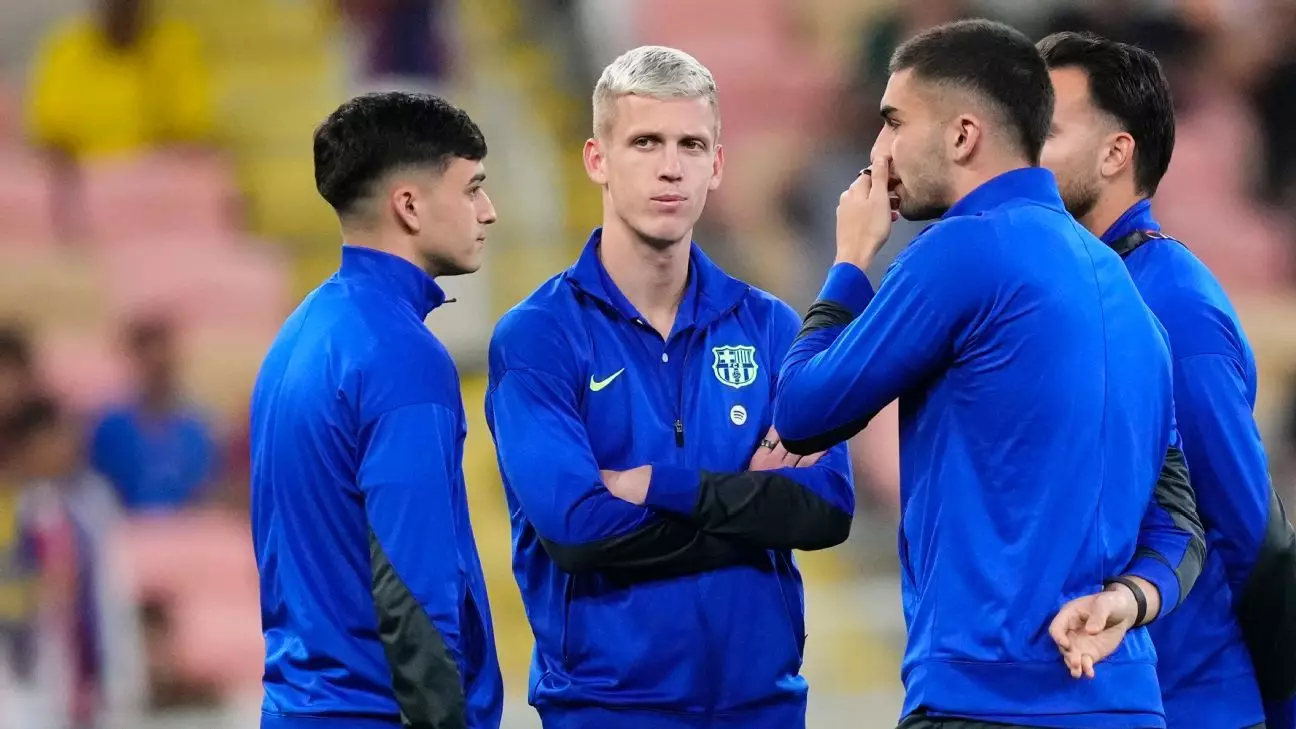The world of professional football is no stranger to controversies, but the unfolding situation involving FC Barcelona and its recent player registrations has sparked particularly intense debates. Central to this issue are two players, Dani Olmo and Pau Víctor, who were granted temporary playing registrations by Spain’s Sports Council (CSD) despite having been previously barred from playing by both LaLiga and the Royal Spanish Football Federation (RFEF). This decision thus raises profound questions about the integrity of football governance and financial compliance.
Barcelona’s troubles began when the Catalan club allegedly failed to meet its financial obligations. Specifically, the club missed the December 31 deadline to demonstrate compliance with LaLiga’s financial fair play regulations. Both the RFEF and LaLiga denied the registration of Olmo and Víctor, leaving Barcelona in an inexplicable quandary. However, the CSD intervened, allowing these players to participate temporarily pending a final ruling. This turn of events has been deemed “grotesque” by Athletic Club’s president, Jon Uriarte, who highlighted the disconnect between regulatory expectations and the practicalities of football operations.
Athletic Club’s vocal opposition highlights the potential double standards in Spanish football. Uriarte’s public outcry is not merely a defensive stance but an indictment of perceived injustices within the league system. He remarked on the absurdity of clubs being obliged to enhance their competitiveness while simultaneously watching others circumvent regulations. This commentary resonates with the broader concerns among countless football fans who crave uniformity in governance. The juxtaposition of Athletic Club, the only team publicly contesting the CSD’s decision, against Barcelona’s seemingly privileged status underscores the tension between established norms and the subjective interpretation of regulations.
In the face of fierce criticism, Barcelona’s sporting director Deco responded defensively. He emphasized that every club navigates unique challenges and should focus on their own issues rather than the workings of others. This argument, however, poses an inherent contradiction: by suggesting that clubs ought to mind their own business, Deco inadvertently sheds light on the lack of accountability that can emerge when the governing bodies allow exceptions to the rules. The statement also raises questions about the broader implications for the competitive landscape—if rules are bent for certain clubs, how does that affect the integrity and fairness of the league as a whole?
The perspectives of the players themselves, such as Athletic forward Iñaki Williams, add another layer to the unfolding drama. Williams commented on the disillusionment felt within Spanish football circles, stating that the actions taken by the CSD could tarnish the league’s image. His belief that the rules must be uniformly applied is echoed by many in the sporting community. Aligning with Williams’s outlook is the speculation that this incident could plant seeds of dissent among teams, fans, and players over perceived inequities in treatment.
The scenario serves as a critical case study on governance in football. LaLiga president Javier Tebas’s surprise at the CSD ruling and his pointed questions about Real Madrid TV’s silence reflect a broader concern among football administrators regarding the ramifications of inconsistent decision-making. Tebas’s remarks highlight the profound implications of political favoritism within sports, where the governance structure ought to ensure transparency and equity but often falters in execution.
The situation involving FC Barcelona and the temporary registration of Dani Olmo and Pau Víctor has exposed a rift in Spanish football’s governance. Athletic Club’s criticisms remind the footballing community of the necessity for vigilance and fairness, while Barcelona must navigate its responsibilities amid heightened scrutiny. Issues of financial compliance must be treated with the utmost rigor, as only then can the integrity of the league and its reputation be preserved. As this controversy plays out, it becomes increasingly crucial for governing bodies to take actionable steps towards transparent, equitable regulations that reinforce the principles of integrity and fairness in football.

